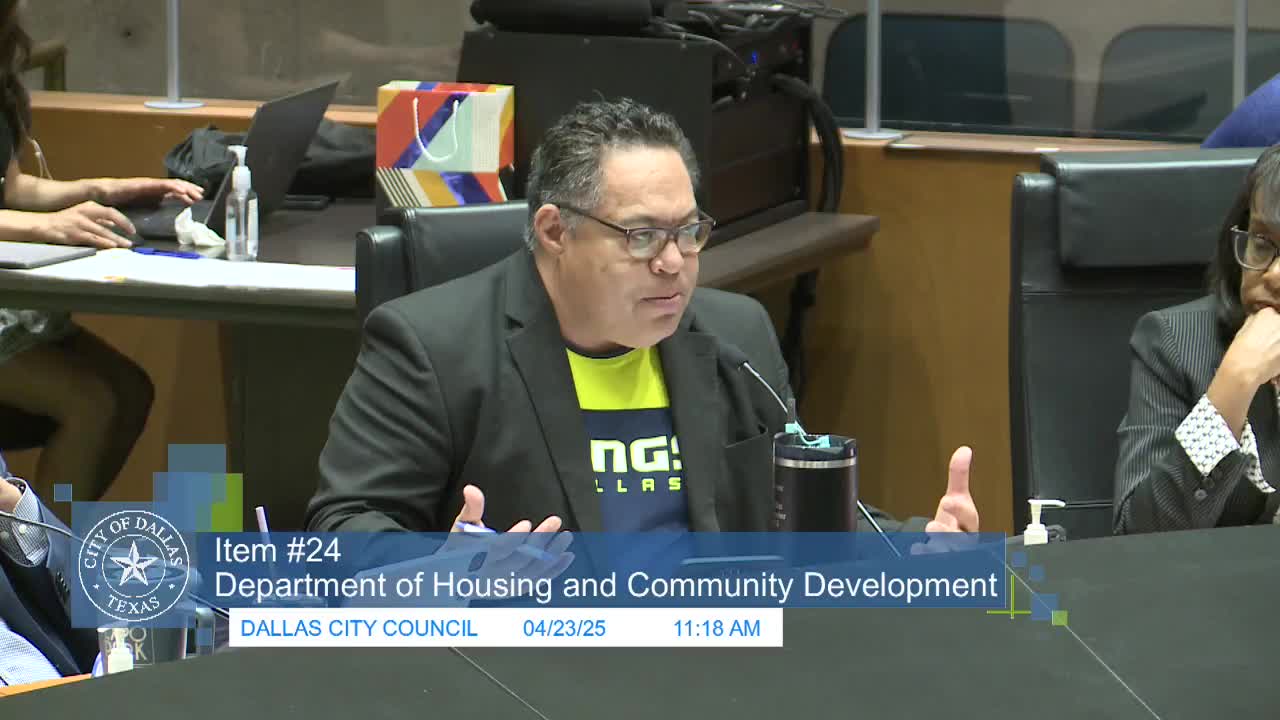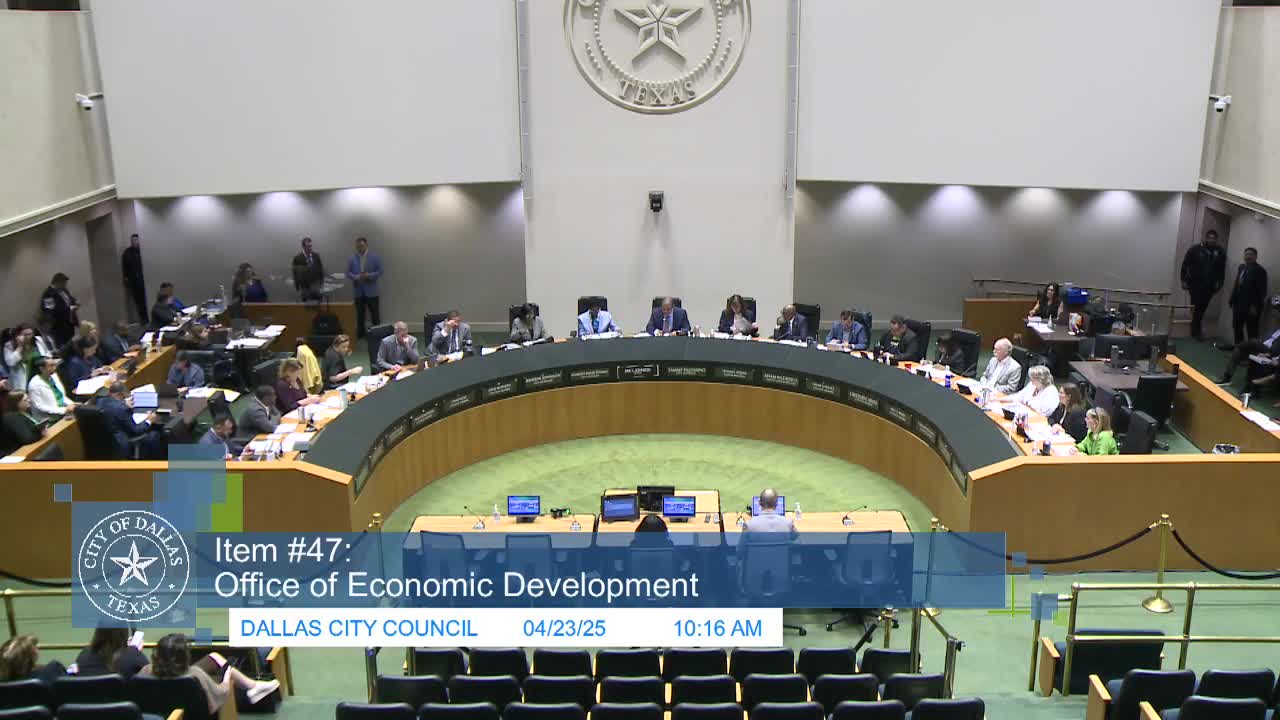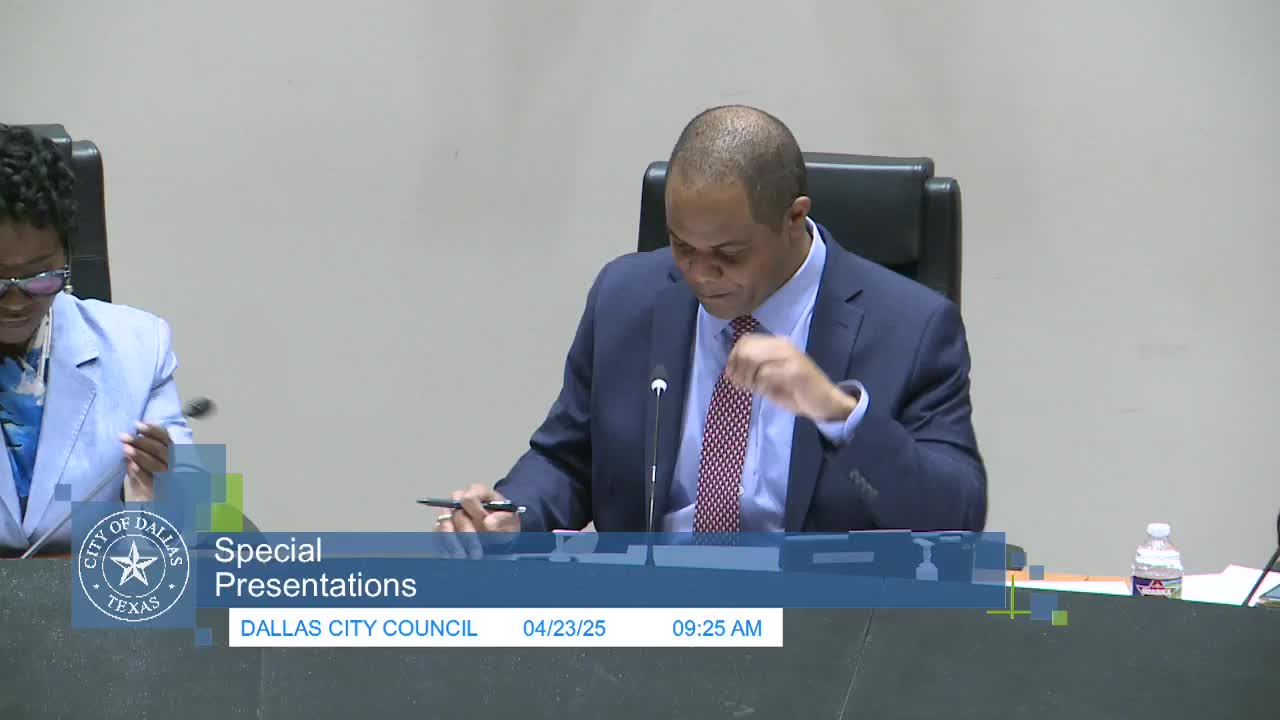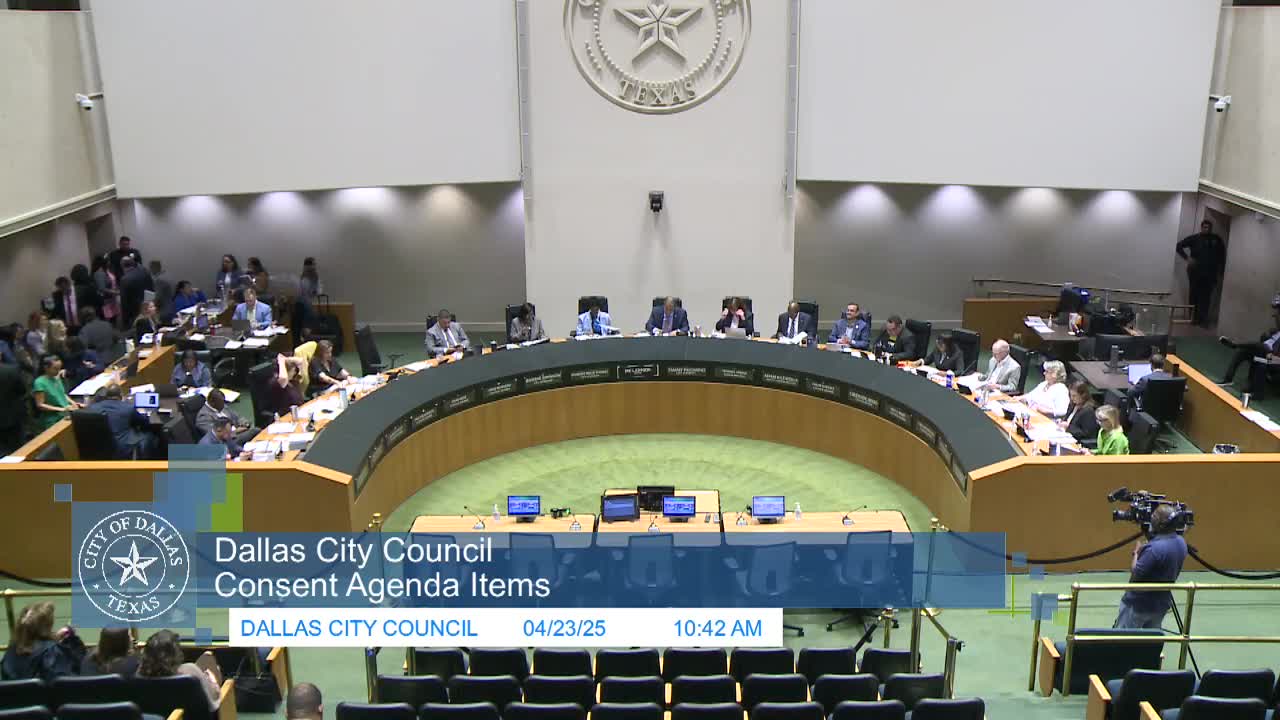Article not found
This article is no longer available. But don't worry—we've gathered other articles that discuss the same topic.

Dallas amends building and residential codes to allow 1–8 family dwellings under residential rules, aiming to spur small-scale housing

Dallas council waives local PID petition thresholds for Redbird and Far East Dallas initiatives, opens policy debate on alignment with state law

Dallas introduces and affirms new police and fire chiefs; leaders pledge focus on trust, recruitment and modernization

